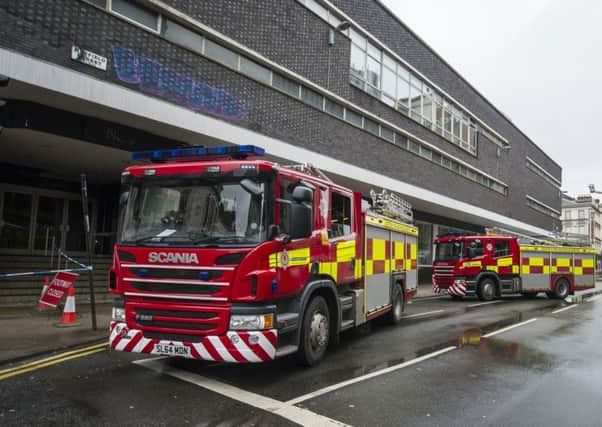Leader comment: Firefighters must be properly funded


The number of fires dealt with by the Scottish Fire and Rescue Service has fallen by about 40 per cent over the last decade.
Improved health-and-safety laws, advances in technology, greater public awareness of the risks and fewer smokers have all contributed to making fire a less frequent danger than it once was.
Advertisement
Hide AdAdvertisement
Hide AdAnd, while the SFRS attended more than 91,000 incidents in 2016-17, 57 per cent of these calls turned out to be false alarms.
So, for politicians looking for ways to save money in these austere times, there might be a temptation to skimp on the funding of the fire service, to save a few million here, a few there, by putting off repair work to a station, or delaying the replacement of a few elderly fire engines with new ones, by just a few years.
The difficulty with that approach is that, while it is perhaps possible to get away with it for a few years and it’s tempting to try to extend that period, the problems gradually build up until the point is reached where a key vehicle breaks down on the way to a serious emergency and people die. A new report by Audit Scotland warns the service is heading towards such a scenario. If spending continued at its current level, “the risk of asset failures, such as vehicle breakdowns, will increase significantly”, the report warned, with the SFRS facing a £400 million repair bill to put its fleet of vehicles in order and fix its properties.
Scotland may not have had a disaster on the scale of the Grenfell Tower fire in recent years, but still the potential is there. Major blazes in Glasgow’s Sauchiehall Street this year and Glasgow School of Art in 2014 could have been much worse.
And, of course, the SFRS is not just about fighting fires, it is also a rescue service and the number of “non-fire incidents” – which include things like helping ambulance crews gain entry to a house where someone has collapsed – has been increasing.
Like Police Scotland, the SFRS was formed from a merger of regional brigades. But, in contrast to Police Scotland’s well-documented troubles, the fire service appears to have handled the considerable upheaval involved much more successfully. However the Fire Brigades Union recently passed a motion of no confidence in the SFRS’s leadership, partly because of concern over the availability of fire appliances. Regardless of the number of fires, the risk will always be there so the fire service must be given the tools to do its job.
